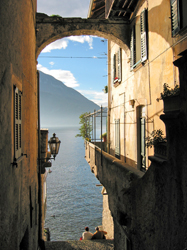Analysing the role of enterprise in tourism
Europe's rural regions exhibit potential for advancements in integrated tourism. The SPRITE project has sought to examine this aspect in depth in order to develop the correlation between tourism and local and regional resources, activities and products. Within a vast study involving 12 rural regions across Europe, surveys were conducted on tourists, businesses, communities and institutions. In this effort, economic, social and cultural dimensions of integrated tourism were targeted in order to arrive at impacts and benefits. In particular, 50 businesses and 20 resource controllers were surveyed from each area. Resource controllers were categorised as persons, groups or agencies owning or operating resources and infrastructure related to tourism. Businesses were classified as those who profit from tourism. How businesses and resource controllers impact the development of integrated tourism was the main focus. The theme-based surveys allowed for qualitative analysis of the fundamental processes as well as a means to pinpoint and assess trends and relationships. Individual country reports were drafted in order to highlight inter-regional comparisons and to offer extensive information on businesses and resource controllers. Furthermore, perceived notions of the links between tourism and location as well as attitudes about and participation in, the tourism industry were assessed in order to arrive at more effective tourism policies.



